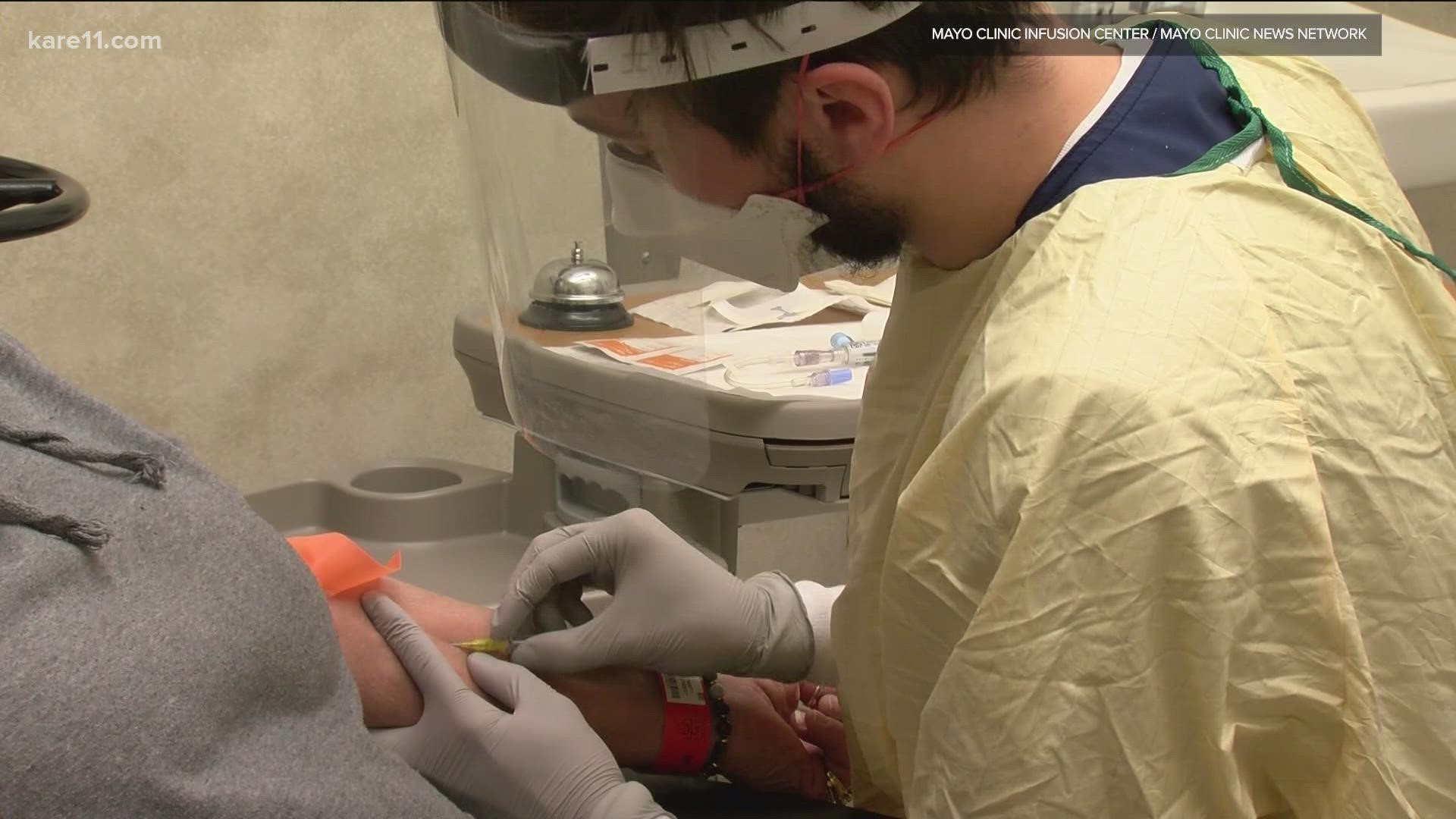ROCHESTER, Minnesota — New Mayo Clinic research shows a combination of monoclonal antibody treatments can help keep more high-risk patients out of the hospital when infected with mild to moderate COVID-19.
The observational study took place between December 2020 and early April. Nearly 1,400 Mayo Clinic patients were enrolled in the study — half of them receiving a combination of casirivimab and imdevimab.
The U.S. Food and Drug Administration issued an emergency use authorization in November 2020 for the drug combination to be used on patients 12 years of age or older who are at high risk for progressing to severe COVID-19.
Those with an increased risk of hospitalization include patients 65 years of age or older, as well as those with medical conditions like diabetes or kidney disease.
The Mayo Clinic study found the monoclonal antibody treatment combo lowered the risk of hospitalization by 60%-70%. Even those who needed to be hospitalized were less likely to be admitted to the ICU or die.
"This is a laboratory made protein. It's very specific... that's why we call it monoclonal," explained Dr. Raymund Razonable, a Mayo Clinic infectious diseases specialist and senior author of the study. "It's an antibody that binds to the virus and the binding of this antibody to the virus will prevent subsequent infection of human cells. We think this is the reason why patients get better quicker and they don't progress to severe illness that requires hospitalization."
Dr. Razonable said the one-time intravenous infusion takes about 20 minutes. Patients are then kept for an hour to observe potential side effects although he said those are uncommon.
It needs to be given as early as possible when symptoms are mild to moderate.
"As soon as an individual experiences symptoms that could be COVID, please get tested right away. If you are positive, get a hold of your local providers or local hospital to see if this is a treatment that is available for you," Dr. Razonable said. "If the COVID progresses to a point where it is considered severe, that requires you to visit the emergency department or even get hospitalized for, then this monoclonal antibody will no longer work. So for it to be most effective, we have to get the treatment to patients as early as possibly."
Recently, Dr. Anthony Fauci said monoclonal antibody treatments for COVID-19 are underutilized. According to Dr. Razonable, the treatment is effective against the delta variant. With the current surge, states like Florida are now offering it at pop-up sites.
But the treatment is not a substitute for getting vaccinated against COVID-19.
"Vaccination is still highly recommended. These monoclonal antibodies are temporary. They cause an immediate effect so they help patients get better quicker but these antibodies will eventually get eliminated from the body and it does not offer long-term protection but vaccines do," Dr. Razonable said.
Mayo Clinic has sites offering this treatment in Mankato, Cannon Falls, Albert Lea and Rochester. There are also other sites across the state.
The Minnesota Department of Health has the Minnesota Resource Allocation Platform for COVID-19 Treatment (MNRAP) — an online tool that connects people and health care providers with COVID-19 medications. You can find out more about monoclonal antibody treatment on the website and fill out the screening process.
According to Dr. Razonable, when Mayo Clinic patients are positive with COVID-19 and eligible for this treatment, Mayo will reach out and offer it. Currently, about 60% of patients accept it. He's hopeful this new study will increase those rates, saying, "We're hoping to get more because we know that it works in the long-term."

